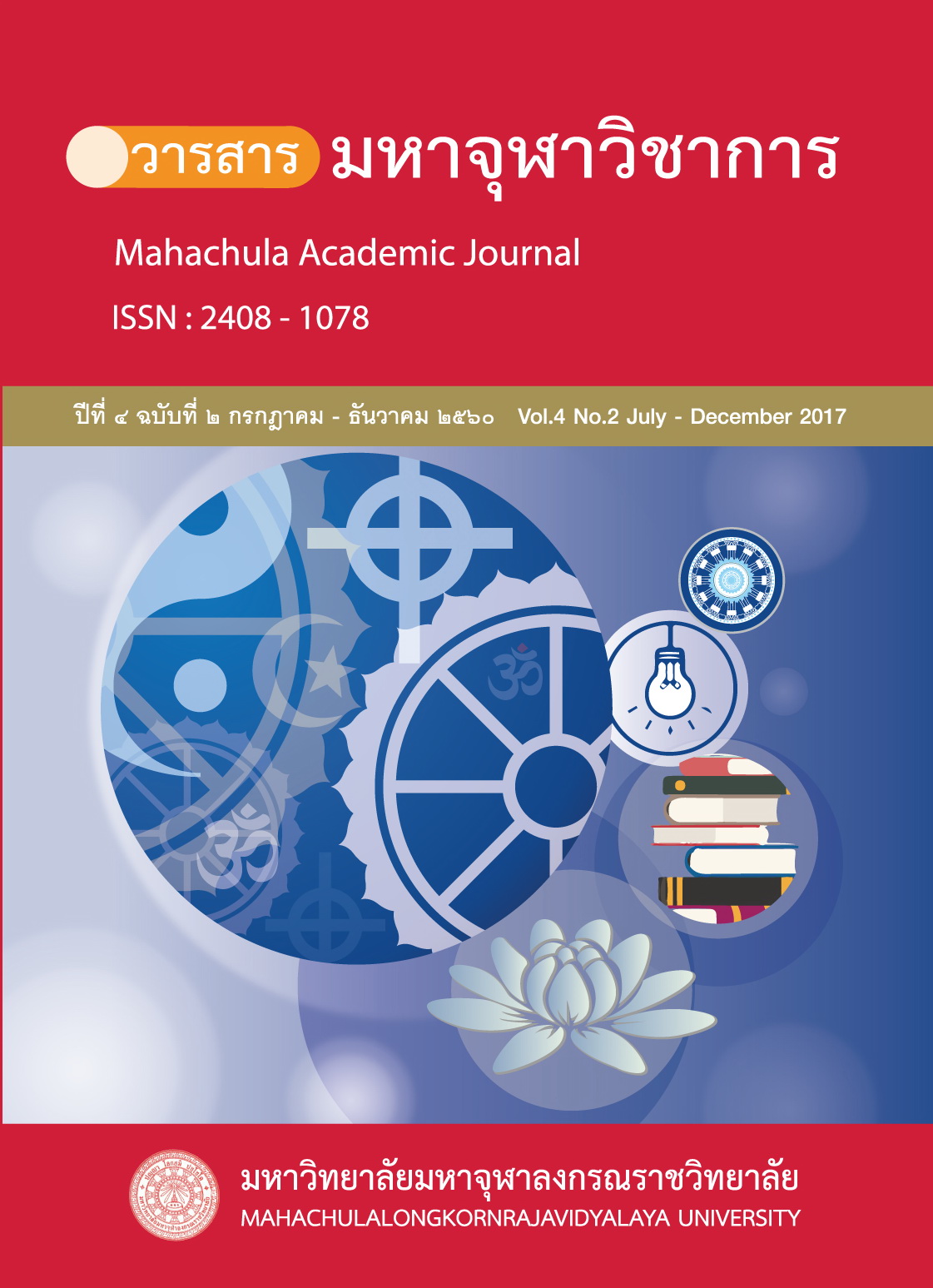An Analysis the Relationship between Epistemology and Language Philosophy in the Concept of Dharmakĩrti
Main Article Content
Abstract
The Article, Re: “An Analysis of Relationship between Knowledge and Language in Concept of Dharmakĩrti” serves three objectives: 1) to study the theory of knowledge according to the concept of Dharmakĩrti 2) to study the philosophy of language according to the concept of Dharmakĩrti 3) to analyze the relationship between theories of knowledge and the philosophy of language according to the concept of Dharmakĩrti. This research use documentary methodology.
In the question what are the Relationship between Epistemology and Language Philosophy in the Concept of Dharmakĩrti. The research found that the knowledge and language of Dharmakĩrti are related in two ways. And in each aspect, there are key factors that affect relationships. Firstly, realistic relationship, driven by awareness, demonstrates higher capability of one’s perception as well as prevention of potential thought distortion. Secondly, cause and effect Relationships, in which factors affecting the quality of relationships are necessary. Thus, although the object of language (Sãmãnya: Universal) and the object of reality (Svalaksana: Particular) are different, Understanding the nature of language and instruments of knowledge can reveal the connection of two types of objects. This research proposes that the study about the effects of sense for
communication
Article Details
References
พระศรีคัมภีรญาณ. พุทธปรัชญา. พระนครศรีอยุธยา: โรงพิมพ์มหาจุฬาลงกรณราชวิทยาลัย, ๒๕๕๖.
โสรัจจ์ หงศ์ลดารมภ์. ปรัชญาภาษา. พิมพ์ครั้งที่ ๒. กรุงเทพมหานคร: สำนักพิมพ์แห่งจุฬาลงกรณ์มหาวิทยาลัย, ๒๕๕๘.
Amar Singh. The Heart of Buddhist Philosophy: Dinnaga and Dharmakĩrti. New Delhi: Munshiram Manoharlal Publication, 1984.
Bimal Krishna Matilal. The Character of Logic in India. New York: State University of New York Press, 1998.
Dunne, John D. Foundations of Dharmakirti's Philosophy (Studies in Indian and Tibetan Buddhism). Boston: Wisdom Publications, 2004.
Geoges B.J. Dreyfus. Recognizing Reality: Dharmakirti’s Philosophy and Its Tibetan Interpretations. New York: State University of New York Press, 1997.
John D. Dunne. Foundation of Dharmakirti’s Philosophy. Boston: Wisdom Publication, 2004.
Jonardon Ganeri. Epistemology, Logic, and Grammar in Indian Philosophical Analysis. New York: Oxford University Press, 2005.
José Ignacio Cabesón. Buddhism and Language: A Study of Indo-Tibetan Scholasticism. New York. State University of New York Press. 1956.
J.P.Pathirana. Pragmatism in Buddhism. Dehiawala Sri Lanka: Buddhist Cultural Centre, 2003.
Mark Siderits. Indian Philosophy of Language: Studies in Selected Issues. New York: Springer-Science+Business Media, 1946.
Rajendra Prasad. Dhamrmakirti’s Theory of Inference Revaluation and Reconstruction. New Delhi: Oxford University Press, 2002.
S.R. Bhatt and Anu Mehrotra. Buddhist Epistemology. London: Greenwood Press, 2000.
Tom J.F. Tillemens. Dharmakĩrti’s Pramãnavãrttika: An Annotated Translation of the Forth Chapter (Parãrthãumãna) Volume 1 (k.1-148). Austria : Osterreichische Akademie der Wissenschften Wien, 2000.


